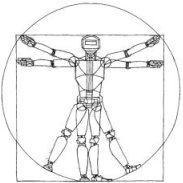Robotics: Science and Systems XIV
Creating Foldable Polyhedral Nets Using Evolution Control
Yue Hao, Yun-hyeong Kim, Zhonghua Xi, Jyh-Ming LienAbstract:
Recent innovations enable robots to be manufactured using low-cost planar active material and self-folded into 3D structures. The current practice for designing such structures often uses two decoupled steps: generating an unfolding (called net) from a 3D shape and then finding the collision-free folding motion that brings the net back to the 3D shape. This raises a foldability problem, namely that there is no guarantee that continuous motion can be found in the latter step, given a net generated in the former step. Direct evaluation on the foldability of a net is nontrivial and can be computationally expensive. This paper presents a novel learning strategy that generates foldable nets using an optimized genetic-based unfolder. The proposed strategy yields a fitness function that combines the geometric and topological properties of a net to approximate the foldability. The fitness function is then optimized in an evolution control framework to generate foldable nets. The experimental results show that our new unfolder generates valid unfoldings that are easy to fold. Consequently, our approach opens a door to automate the design of more complex self-folding machines.
Bibtex:
@INPROCEEDINGS{Hao-RSS-18,
AUTHOR = {Yue Hao AND Yun-hyeong Kim AND Zhonghua Xi AND Jyh-Ming Lien},
TITLE = {Creating Foldable Polyhedral Nets Using Evolution Control},
BOOKTITLE = {Proceedings of Robotics: Science and Systems},
YEAR = {2018},
ADDRESS = {Pittsburgh, Pennsylvania},
MONTH = {June},
DOI = {10.15607/RSS.2018.XIV.007}
}
